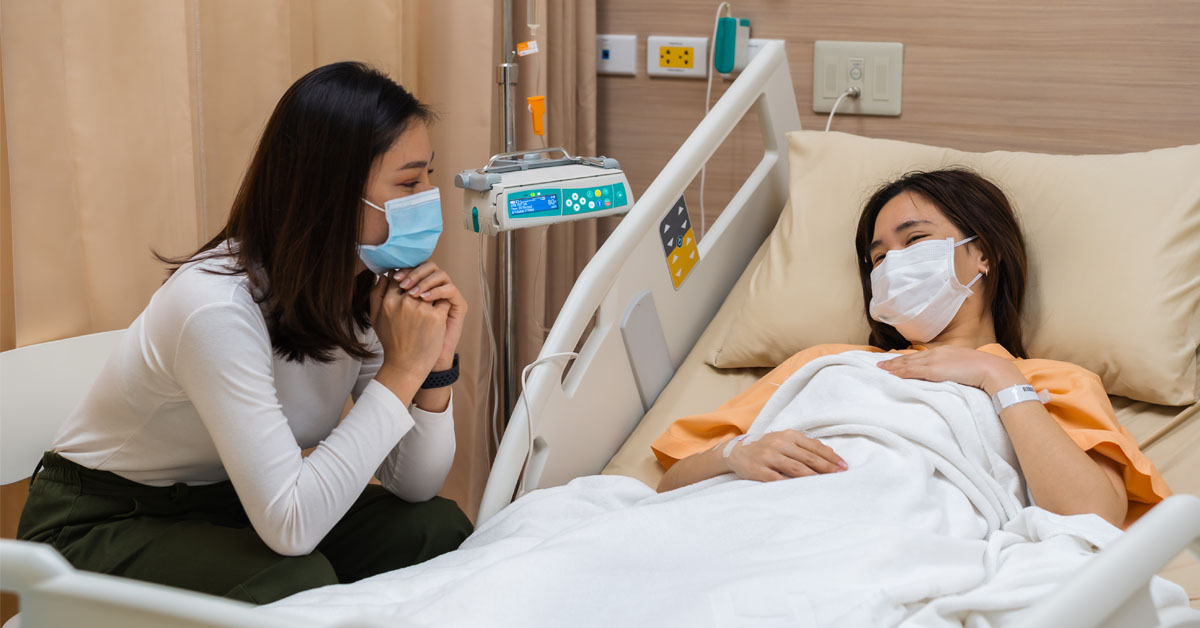According to Health Minister Ong Ye Kung, he believes that Singapore is close to, If not already at, the peak of the current wave of COVID-19 infections.
As of Tuesday, there were 12,784 new COVID-19 cases, which more than doubles the 5,946 cases on Monday.
This also exceeds the 11,504 recorded last Tuesday (28 June), which had been the highest daily number of infections in the past three months or so.
The caseload on Tuesday tends to be higher compared to the other days of week as they reflect the spike in infections after the weekend, where people are gathered at various social settings.
The fortunate part is that the week-on-week infection ratio has dropped to 1.34 on Tuesday, from 1.46 on Monday.
Additionally, Mr Ong stated that Singapore should feel “relieved” that the case numbers didn’t double that of last Tuesday, or else we’d be looking at 24,000 or 22,000 infections this week.
He affirmed that the current wave won’t be as severe as the previous wave, since many people have gained stronger immunity through booster shots or have recovered from previous infections, which will reduce the transmission of COVID-19.
Keeping Workload at Hospitals Stable
While we can count our blessings that the second Omicron wave isn’t as overwhelming, it’s still important to ensure that the hospital capacity isn’t overly stressed.
The number of COVID-19 hospitalisations have nearly reached 700, though this figure remains below the 1,700 hospitalisations from earlier this year.
Moreover, the hospitals have cut back the resources dedicated to COVID-19 cases by 4%. Some treatment facilities that were set up specifically for COVID-19 have also been converted to take in non-COVID-19 patients.
The Health Ministry hopes that more of our COVID-19 Treatment Facilities (CTF) can become multi=purpose isolation and treatment facilities, catering to both the infected and non-infected.
New Hospital and Residential Care Home Rules
In order to protect the healthcare workers and the vulnerable, the government has decided to impose limits on the number of visitors at all hospital wards and residential care homes again.
This change will last for 4 weeks, until 3 August.
The rules are similar to the previous restrictions imposed on these medical facilities:
- All patients will be allowed to have two pre-designated visitors for the duration of their admission, and only one visitor is allowed to be at their bedside
- Critically ill patients will be allowed to have five pre-designated visitors, and only two visitors will be allowed at their bedside at any given instance
- For patients in residential homes, they are allowed to have four pre-designated visitors, and only one visitor may visit at a time
- Residential home visits should be scheduled ahead of time
- Visits will be limited to 30 minutes
- Hospitals have the permission to extend the duration, but its at their discretion
- Visitors must ensure that they are of sound health before the visit, and strongly encouraged to take an antigen rapid test on the day of the visit.
- Hospitals have the discretion to impose stricter visitor limitations, or testing requirements for vulnerable or unvaccinated visitors
- Visitors should not eat and drink in the medical facilities, or use the toilets designated for patients
- Visits may be suspended if a home is dealing with active COVID-19 cases
- Visitors must wear masks with good filtration capabilities
In essence, only pre-designated visitors are allowed to visit, only one or two visitors are allowed to be close to the patient at any given time.
Visitors are advised to take their own precautionary measures to reduce the risk of transmission.
Hospitals and residential care homes have the autonomy to decide on stricter limits based on their own situation.
Half of the infections in Singapore can be attributed to the newer Omicron sub variants BA.4 and BA,5, a 30% increase from last week.
It is expected that it will account for 70% to 80% of the cases next week.
Besides prescribing oral antivirals, which help to reduce the risk of severe disease and hospitalisation, the government is currently looking into the bivalent vaccine created by Pfizer-BioNTech and Moderna that specifically fights against the original COVID-19 and Omicron.
If they are approved, shipments will arrive by the end of the year.
The Ministry of Health strongly recommends anyone who hasn’t taken their booster shot to take them, as they are equally effective.
Read Also:
Featured Image: Shutterstock / BaLL LunLa
